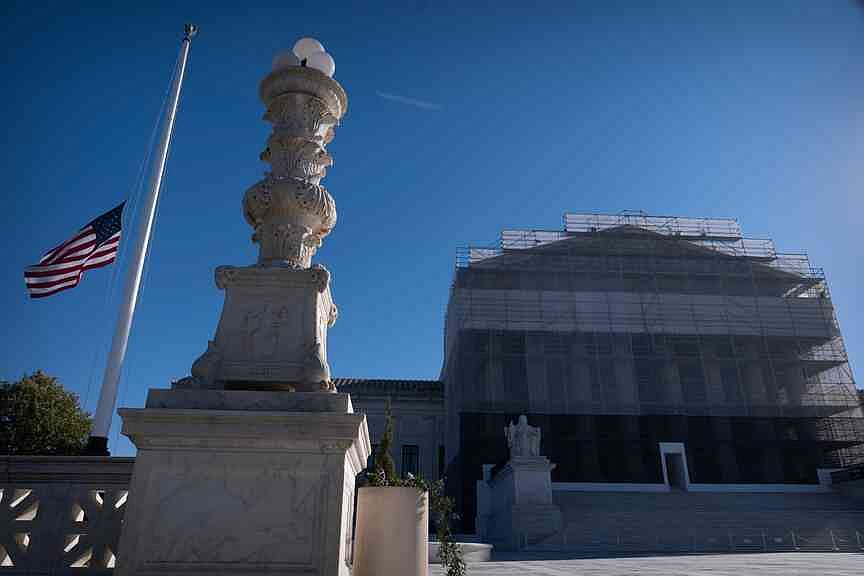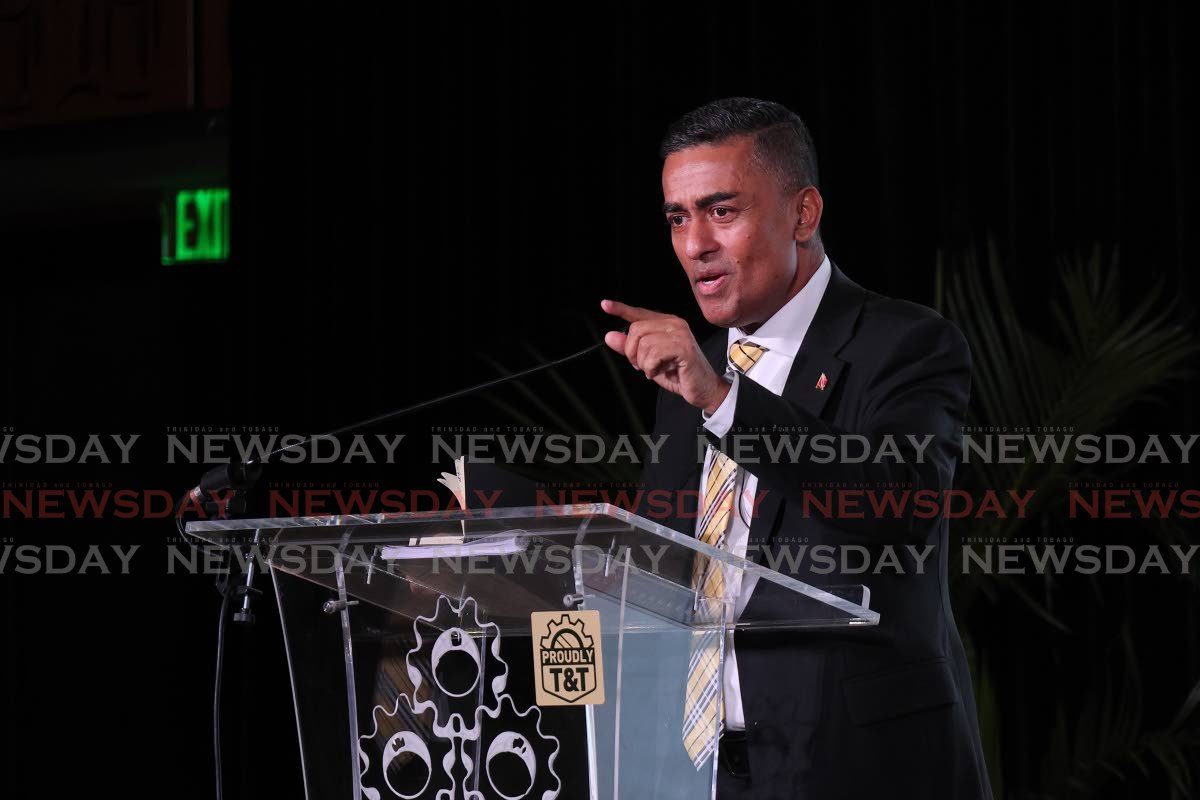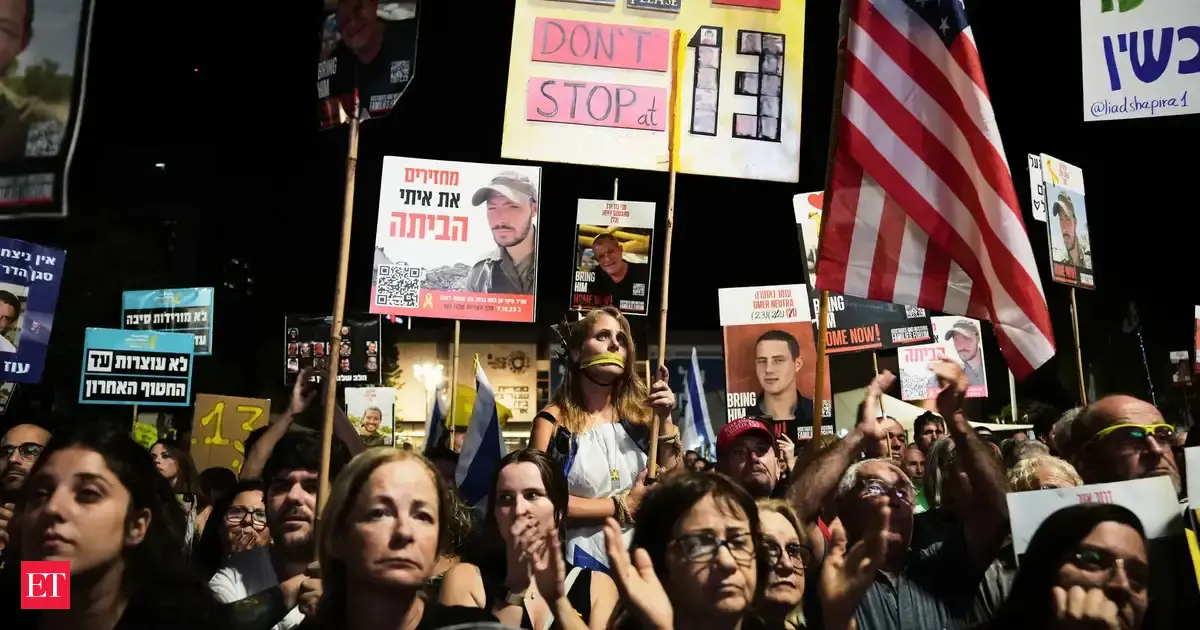Copyright Arkansas Online

WASHINGTON -- A majority of Supreme Court justices seemed skeptical Wednesday about President Donald Trump's ability to unilaterally impose far-reaching tariffs, putting at risk a cornerstone of his agenda in the biggest legal test yet of his boundary-pushing presidency. Three conservative justices raised questions about whether an emergency law gives Trump near-limitless power to set and change duties on imports, with potentially trillion-dollar implications for the global economy. The court's three liberal justices also appeared dubious, so at least two conservative votes could limit Trump's tariff power under the law. It likely would not end it altogether, however. The case is the first major piece of Trump's agenda to come squarely before the nation's highest court, which he helped shape by naming three of the nine justices in his first term. The conservative majority has so far been reluctant to check his extraordinary flex of executive power in short-term orders in cases ranging from high-profile firings to major federal funding cuts. That could change with a more detailed ruling in the tariff case, though it will likely take weeks or months to come down. The Constitution says Congress has the power to levy tariffs. But, in a first, the Trump administration argues that an emergency law allowing the president to regulate importation also includes imposing tariffs. Justice Neil Gorsuch appeared concerned that could shift too much congressional power to the president on an issue that helped spark the American Revolution. "It's a one-way ratchet toward the gradual but continual accretion of power in the executive branch and away from the people's elected representatives," he said, later suggesting the "power to reach into the pockets of the American people" must be "done locally, through our elected representatives." Chief Justice John Roberts raised questions about whether the emergency-power law allowed for tariffs on "any product, from any country, in any amount, for any length of time." Justice Amy Coney Barrett also pressed the government on the broad range of Trump's action. "Spain? France? I mean, I could see it with some countries but explain to me why as many countries needed to be subject to the reciprocal tariff policy." Solicitor General D. John Sauer said lopsided trade deals are a "global problem," and Trump's tariffs are primarily about regulating foreign commerce to be fairer, rather than raising money that would encroach on Congress's taxation power. "The fact that they raise revenue is only incidental," he said. Within hours, though, Trump said his tariffs would help slash the deficit. "My tariffs are bringing in hundreds of billions of dollars," he said in a speech to business leaders in Miami. Trump has called the case one of the most important in the country's history and said a ruling against him would be catastrophic for the economy. The arguments were about two sets of tariffs. The first came in February on imports from Canada, China and Mexico after Trump declared a national emergency over drug trafficking. The second involves the sweeping "reciprocal" tariffs on most countries that Trump announced in April. Multiple lawsuits have been filed over those tariffs, including a case from a dozen largely Democratic-leaning states and another from small businesses focused on everything from plumbing supplies to women's cycling apparel. They argue the 1977 emergency powers law Trump used doesn't even mention tariffs, and no president before has used it to impose them. Lower courts have agreed that the tariffs were an illegal use of the 1977 International Emergency Economic Powers Act, or IEEPA, though some appeals court judges did side with the Trump administration and found the law gives the president broad power. At the Supreme Court, much of the argument centered around the legal principle known as the major questions doctrine. It doomed some signature policies of former President Joe Biden, including his $500 billion student loan forgiveness program. The challengers say Trump's tariffs should get the same treatment, since they'll have a much greater economic effect, raising some $3 trillion over the next decade. The government, on the other hand, said the tariffs are different because they're a major part of Trump's approach to foreign affairs, an area where the courts should not be second-guessing the president. Justices like Brett Kavanaugh seemed receptive to that argument. "So you're forcing the president to respond to an emergency ... and you're taking away the president's suite of tools," he said. "That just seems a bit unusual." Roberts also seemed concerned about going too far in restricting the president's foreign affairs power. The challengers, though, say the tariffs amount to a domestic tax because they are largely paid by Americans. Attorney Neal Katyal, representing a group of small business challenging the tariffs, argued that Congress would cede control of tariffs for good if the court sided with Trump. "We will never get this power back if the government wins this case. What president wouldn't veto legislation to rein this power in and pull out the tariff power?" he said. If Trump eventually loses at the high court, the aftermath could be complicated if the government must issue refunds. So far, the Treasury has collected almost $90 billion from the import taxes the president has imposed under the emergency powers law. But tariffs likely won't be going away. Trump could still impose tariffs under other laws, though they have more limitations on the speed and severity with which he could act. TRUMP'S COMMENTS In the afternoon, Trump took a victory lap on the economy on the one-year anniversary of his successful election, boasting of cheaper prices and saying the U.S. is the envy of the globe even while the Republican Party faced a rebuke from voters anxious about their own finances in Tuesday's off-year elections. Trump, speaking Wednesday at the America Business Forum, said he thinks that communication was the problem, insisting that "we have the greatest economy right now" and that "a lot of people don't see that." "These are the things you have to talk about," Trump told a packed arena at Miami's Kaseya Center that included top business executives, global athletes and political leaders. "If people don't talk about them, then you can do not so well in elections." It marked a significant effort from Trump to put a positive spin on the economy at a time when Americans remain uneasy about the cost of living and their own financial security -- and when major campaigns in Tuesday's elections -- from New York to Virginia -- were centered on affordability and the economy. Trump's comments echoed sentiments from Biden, whose White House insisted that the Democrat's political standing would improve if they better communicated his economic accomplishments. Trump's speech often deviated from the topic at hand, and included a call for South Africa to leave the Group of 20. But he made sure to underscore what he saw as his economic successes. On digital assets, Trump said that "crypto was under siege; it's not under siege anymore." He pointed to declines in egg and gas prices, and the interest rate, despite the "nincompoop" at the Federal Reserve, a reference to Fed chairman Jerome Powell. Trump referred to his pledge to dissolve 10 existing regulations for every new one he issues, and said "so far for nine months, we're exceeding that." Despite Trump's promises to tame inflation and unleash growth, the AP Voter Poll survey, which included more than 17,000 voters in New Jersey, Virginia, California and New York City, suggested the public was troubled by higher prices and fewer job opportunities. Republicans handily lost key races in Virginia and New Jersey, and the president acknowledged Wednesday that the ongoing government shutdown, with effects rippling through the economy, was "negative for the Republicans." He also touched on how his trips abroad are benefiting the U.S. Trump spent five days in Asia last week with stops in Malaysia, Japan and South Korea. He worked to ease trade tensions with Beijing in a meeting with Chinese leader Xi Jinping. In Tokyo, he promoted several major energy and tech projects for the U.S. that will be funded by Japan. Information for this article was contributed by Lindsay Whitehurst and Seung Min Kim of The Associated Press.



